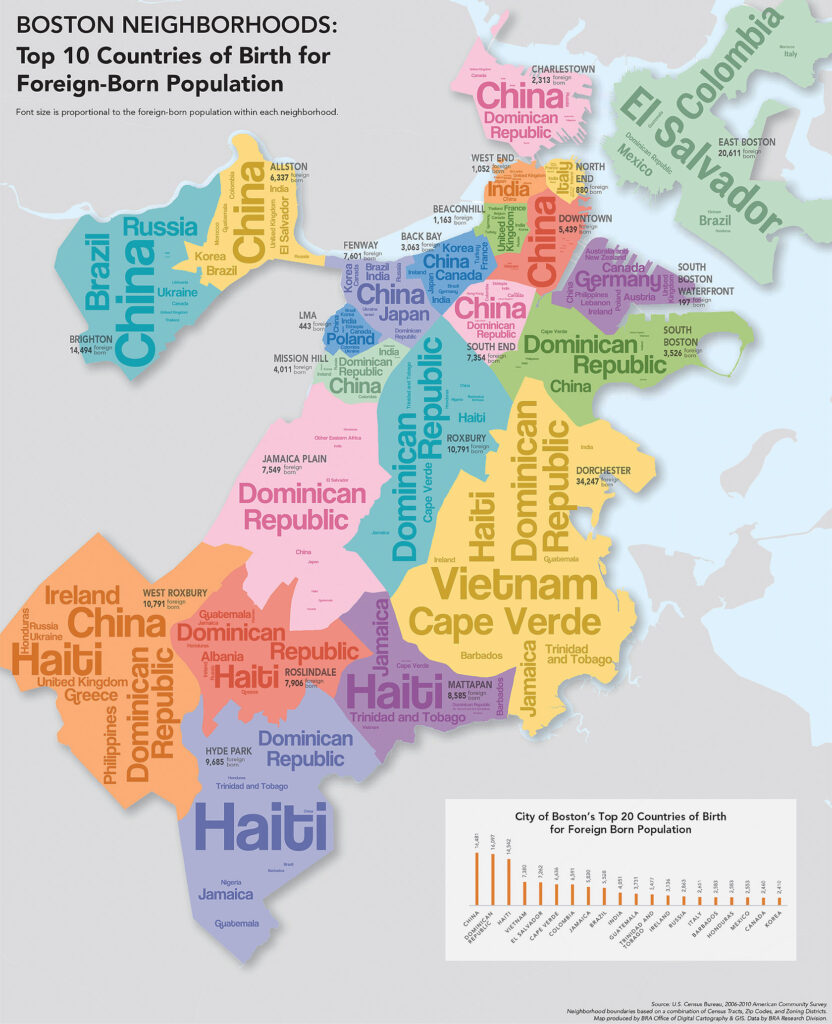
Although it hasn’t always felt like it, Boston is a melting pot of diversity, eclecticism and culture. Growing up, I can remember laughing with friends at the Caribbean Carnival on Blue Hill Avenue, eating Dominican empanadas at El Dug Out after cheer practice at White Stadium and dancing to Haitian konpa at basement parties in Mattapan. Our city has a rich history of being a stomping ground for immigrants seeking a better life and has become the birthplace of many first-generation Americans. There are also generations of native-born Black Americans who have lived in Boston since before the Great Migration.
While many of us see Boston as home, it may seem like we are all living different lives. This city, with historical roots in racism and segregation, can be perceived as a place that naturally divides its people. We typically see this in the clear distinction between communities. The previous impression — that downtown Boston is reserved for wealthy whites while the inner city is constantly changing hands because of gentrification — is not so much a perception at this point, but a reality.
Boston is made up of nearly 690,000 residents. Of this number, 29% of the population are foreign-born, and then there are the many children of immigrants. Census data show 28% of foreign-born immigrants identify as Hispanic/Latino and 27% as Black/African American. Of the diaspora, the most common nations of origin for foreign-born immigrants and first-generation residents are the Dominican Republic and Haiti. There are also large populations of Cape Verdeans and Jamaicans.
As a young Black professional, I typically hear from my colleagues and associates that Boston lacks a cohesive Black experience. Many of us are seeking our tribe and have found it difficult to truly come together across those lines. Mattapan and Hyde Park are heavily populated by Dominicans, Haitians and Jamaicans. Many Cape Verdeans own businesses throughout the Bowdoin and Geneva section of Dorchester, and Afro-Latinos have made their home in much of Jamaica Plain and East Boston.
But what does this mean for all of us? There is an unspoken thought that while there is enough room for us in Boston, we rarely come together. Could the answer to this question simply be venturing into the spaces of our counterparts? Can a native-born Black American find solace at a West African restaurant in Roxbury? Can an Afro-Latina experience community at the Haitian parade?
Maybe the answer to our feelings of isolation and separation is to come together as one. Most of us have similar roots and have at least some ancestors who hail from the same place: Africa. While we share distinct differences, you may be surprised how similar our food, cultural practices, music and beliefs actually are.
Thankfully, there are individuals in Boston working to create such a definition of a safe space. Just recently, I attended the Boston While Black Summit, which offered thought-provoking sessions and a wide range of accomplished panelists who discussed all the amazing work occurring in the community. BIPOC restaurants like The Pearl, Estella, Park 54, Hue and Darryl’s Corner Bar & Kitchen are also working to develop a cohesive and inclusive space for Black and brown Boston to dine, dance and network. The Live Like a Local Tour allows residents and visitors to experience Boston outside the Common and Fenway Park. Businesses like Black Owned Boston in the heart of downtown sell a wide range of products created by Black entrepreneurs. Events like Silk and companies like LiteWork Events present fun experiences for members of the diaspora to mix, mingle and simply have fun.
While the effects of the civil rights movement and racial segregation still impact the city, I rest assured that the culture is moving in the right direction. Now a majority minority city, Boston is transitioning into a space where Black and brown individuals can study, work, explore life, build a business and connect with others who understand them.
So the next time you plan your Saturday night in Boston, don’t be afraid to venture out of your comfort zone. You may just find exactly what you were looking for.
Anastasia Walker is a Boston native passionate about art, creativity and culture.






